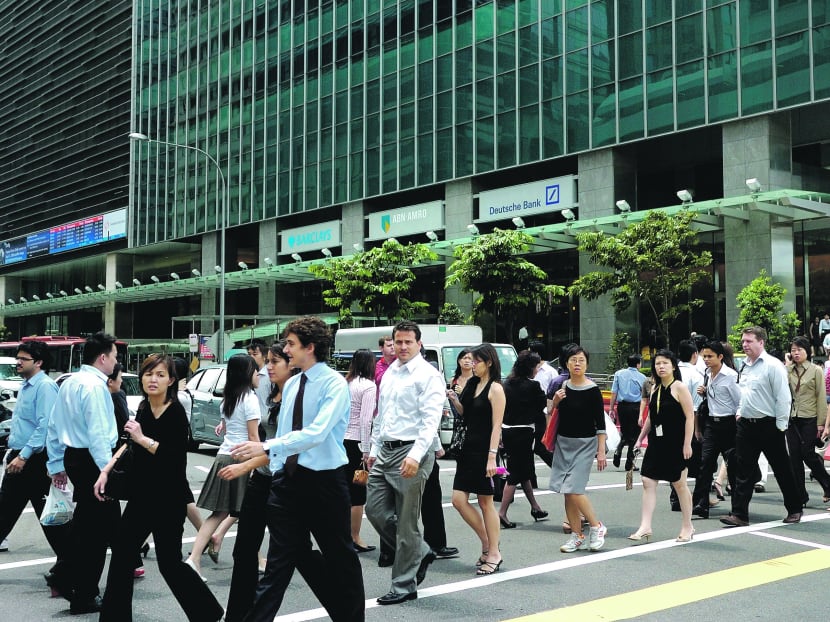Singaporean PMEs uncertain if new rule will improve hiring chances
SINGAPORE — Singaporeans at the professional, managerial and executive (PME) levels are wondering if a newly-announced rule to weed out discriminatory hiring practices will help improve their chances of snagging a job against competition from foreigners, with some citing the ease with which employers can game the system, lack of tough reprisals and less demanding nature of foreign professionals.
SINGAPORE — Singaporeans at the professional, managerial and executive (PME) levels are wondering if a newly-announced rule to weed out discriminatory hiring practices will help improve their chances of snagging a job against competition from foreigners, with some citing the ease with which employers can game the system, lack of tough reprisals and less demanding nature of foreign professionals.
PMEs TODAY interviewed welcomed the intent of the new requirement for firms to post vacancies on a national jobs bank for 14 days before turning to foreigners, which will take effect from next August. However, some — mostly from the banking, IT and communications sectors, which have been cited as sectors that are discriminatory — asked why the Ministry of Manpower (MOM) did not go further, for example, by getting companies to back their claims that local candidates were considered with records of job interviews.
Mr James Wong, 30, an analyst at a financial software company, said: “If the company is already biased against Singaporeans, it just imposes a 14-day waiting period.”
In response to TODAY’s queries, an MOM spokesperson said the “better approach is to reserve additional scrutiny for firms” that hire fewer Singaporean PMEs than the industry norm or get repeated complaints.
“It would not be appropriate for the MOM to assume the worst of every employer, and hence institute intrusive checks on whether they have in fact considered all Singaporean applicants,” she said, reiterating the ministry’s point that hiring attitudes cannot be “legislated away”.
She added that firms are “strongly encouraged” to keep interview and job-offer records — although this is not a requirement — because it will help their case in the event that they are accused of discriminatory hiring.
Other Singaporean PMEs pointed out that for, errant employers, the lack of stiff penalties could make the new rule a blunt tool. The MOM had said such firms may be barred temporarily from hiring foreigners.
Another gap employers might exploit is to hire foreigners on the lower-tiered S-Pass, since the new rule only applies to Employment Pass jobs paying up to S$12,000.
“The framework does not give Singaporeans a competitive edge over foreigners,” said Mr Neo Wee Wu, 30, who works in a bank. Noting foreigners’ lower wage demands, he said “cost of hiring is the main consideration” for firms, which can outsource work instead of expanding their workforce.
In response, the MOM spokesperson said levies and dependency ratio ceilings imposed on S-Passes “will spur firms to search for suitable Singaporeans” first, adding that both measures were enhanced in July. “We will be monitoring hiring practices of firms closely and will extend (the new rule) to S-Pass employers, if necessary.”
The ministry will also consider the Singapore National Employers Federation’s suggestion to exempt jobs which require critical skills that are in short supply, as well as establish a skills shortage list, she added.
Despite doubts about the rule’s effectiveness, some PMEs acknowledged that being over-protectionist could hurt Singapore’s competitiveness. Mr Mak Weijie, a banker, said: “As long as the person is capable enough, it doesn’t matter what nationality he is.”








